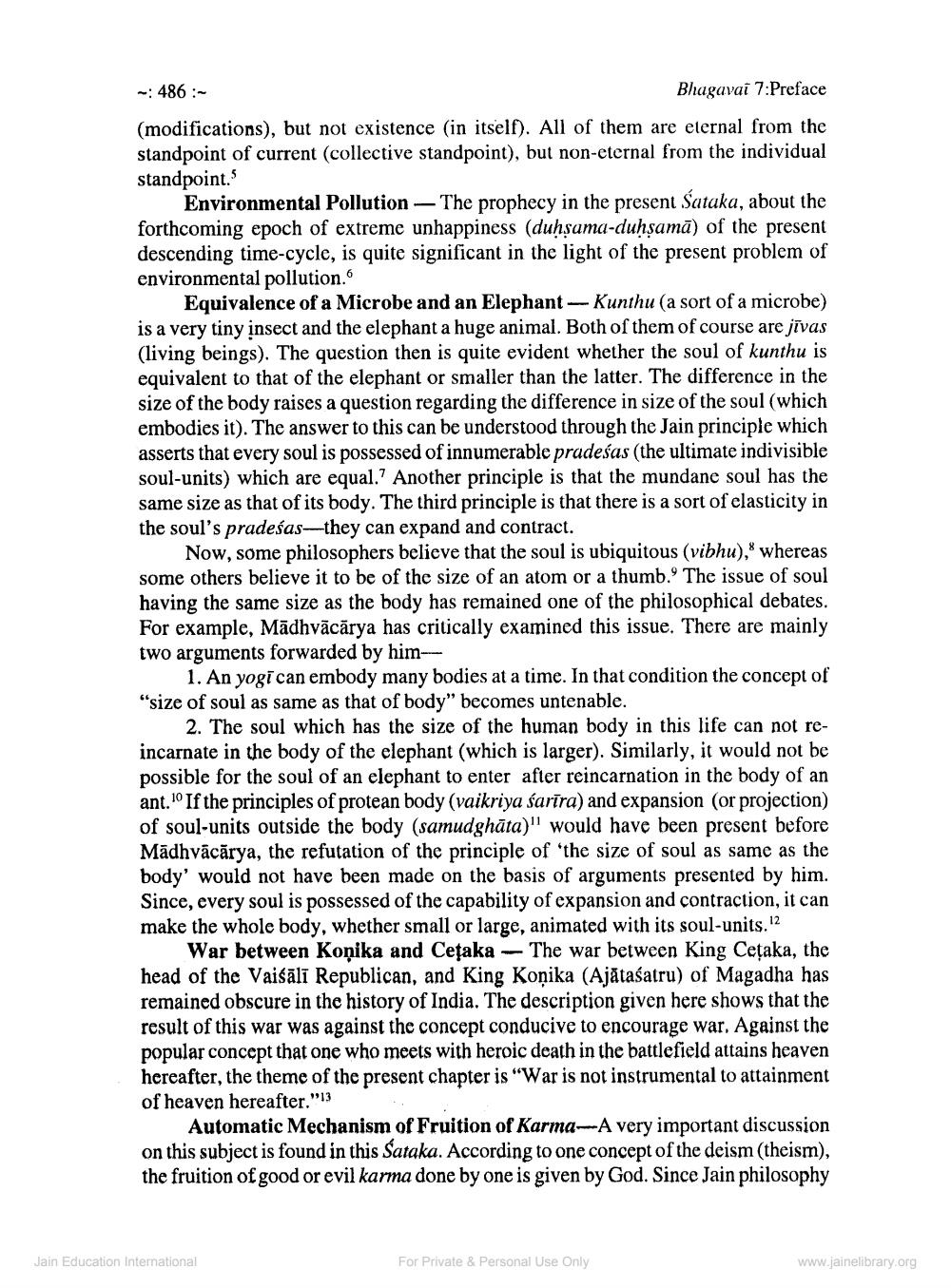________________
-: 486:
Bhagavai 7:Preface
(modifications), but not existence in itself). All of them are eternal from the standpoint of current (collective standpoint), but non-eternal from the individual standpoint.
Environmental Pollution - The prophecy in the present Sataka, about the forthcoming epoch of extreme unhappiness (duhsama-duhsamā) of the present descending time-cycle, is quite significant in the light of the present problem of environmental pollution.
Equivalence of a Microbe and an Elephant -- Kunthu (a sort of a microbe) is a very tiny insect and the elephant a huge animal. Both of them of course are jīvas (living beings). The question then is quite evident whether the soul of kunthu is equivalent to that of the elephant or smaller than the latter. The difference in the size of the body raises a question regarding the difference in size of the soul (which embodies it). The answer to this can be understood through the Jain principle which asserts that every soul is possessed of innumerable pradeśas (the ultimate indivisible soul-units) which are equal.? Another principle is that the mundane soul has the same size as that of its body. The third principle is that there is a sort of elasticity in the soul's pradeśas--they can expand and contract.
Now, some philosophers believe that the soul is ubiquitous (vibhu), whereas some others believe it to be of the size of an atom or a thumb. The issue of soul having the same size as the body has remained one of the philosophical debates. For example, Madhvācārya has critically examined this issue. There are mainly two arguments forwarded by him--
1. An yogican embody many bodies at a time. In that condition the concept of "size of soul as same as that of body" becomes untenable.
2. The soul which has the size of the human body in this life can not reincarnate in the body of the elephant (which is larger). Similarly, it would not be possible for the soul of an elephant to enter after reincarnation in the body of an ant. If the principles of protean body (vaikriya sarīra) and expansion (or projection) of soul-units outside the body (samudghāta)" would have been present before Mādhvācārya, the refutation of the principle of the size of soul as same as the body' would not have been made on the basis of arguments presented by him. Since, every soul is possessed of the capability of expansion and contraction, it can make the whole body, whether small or large, animated with its soul-units. 12
War between Koņika and Cetaka - The war between King Cetaka, the head of the Vaiśālī Republican, and King Koņika (Ajātaśatru) of Magadha has remained obscure in the history of India. The description given here shows that the result of this war was against the concept conducive to encourage war, Against the popular concept that one who meets with heroic death in the battlefield attains heaven hereafter, the theme of the present chapter is "War is not instrumental to attainment of heaven hereafter."'13
Automatic Mechanism of Fruition of Karma-A very important discussion on this subject is found in this Sataka. According to one concept of the deism (theism), the fruition of good or evil karma done by one is given by God. Since Jain philosophy
Jain Education International
For Private & Personal Use Only
www.jainelibrary.org




